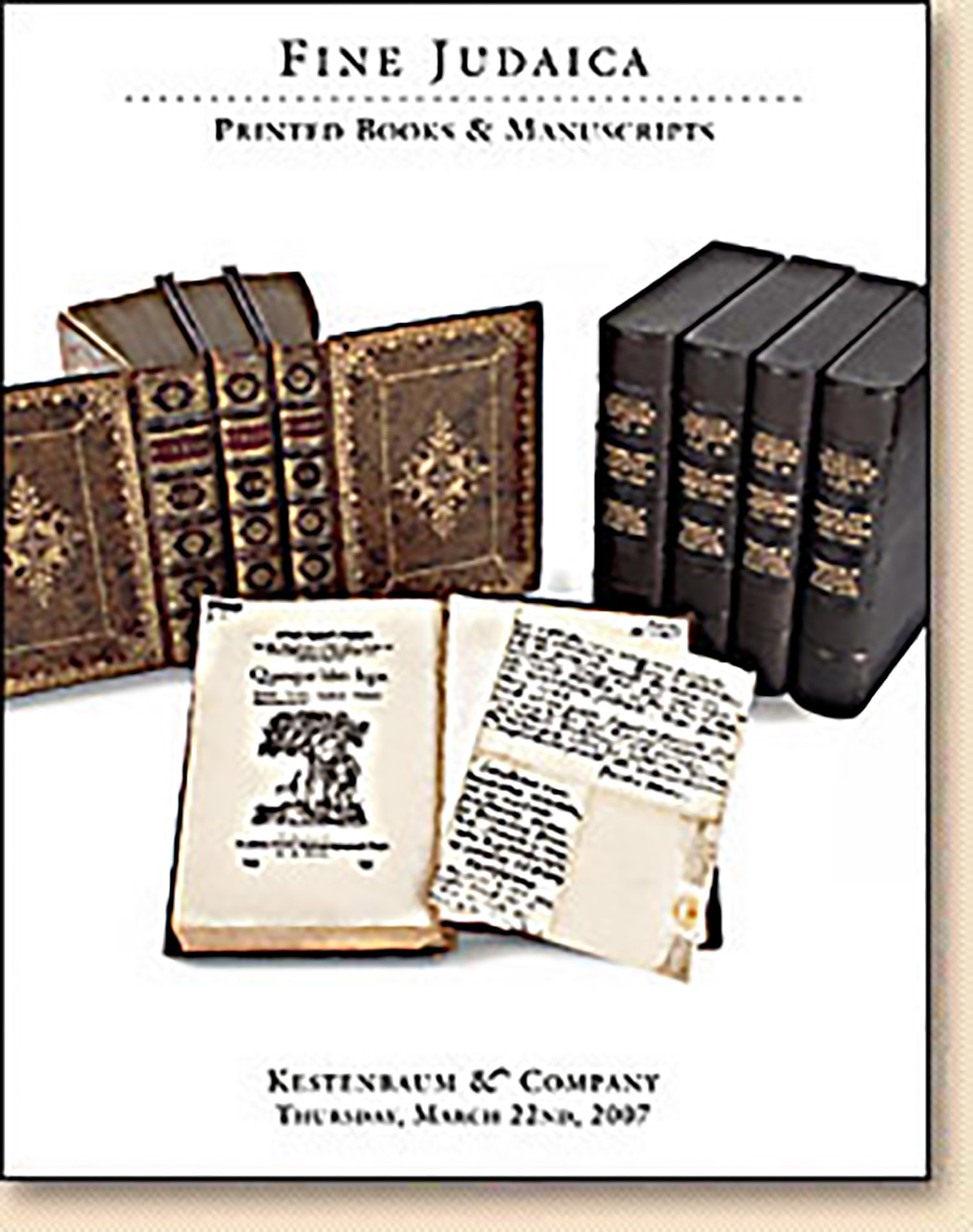(Mendlssohn, Moses.) Li-Kevod adoneinu...Mhor”r Yitzchak Bernays [Panegyric in honor of arrival of Hamburg’s new rabbi, Chacham Isaac Bernays]

AUCTION 36 |
Thursday, March 22nd,
2007 at 1:00
Fine Judaica: Printed Books & Manuscripts
Lot 85
(GERMANY)
(Mendlssohn, Moses.) Li-Kevod adoneinu...Mhor”r Yitzchak Bernays [Panegyric in honor of arrival of Hamburg’s new rabbi, Chacham Isaac Bernays]
Altona: Samuel and Judah Bonn 1821
Est: $800 - $1,200
PRICE REALIZED $850
Isaac Bernays took up his position as Rabbi of Hamburg, then the largest Jewish community in Germany on October 30, 1821. While strictly Orthodox, Bernays did make certain concessions to the times, perhaps most noteworthy being the innovation of sermons in the German tongue, rather than in Yiddish - a ploy designed to win the hearts of the young, who by this time were somewhat at a loss to follow a sermon in Judeo-German.
On p.5 of this poem reference is made to Hamburg’s previous Rabbis: “Jonathan,” i.e. Jonathan Eybeschuetz (served 1749-64), and Raphael Hakohen (1776-99). On p. 8 attention is drawn to the fact that the new rabbi, despite his youth (Bernays was but thirty years old), “is already as wise as many an elder sage.”
Chacham Isaac Bernays (1792-1849) remains to this day something of an enigma. First, there is the rather obvious question, why would an Aschkenazic rabbi be awarded the honorific title “Chacham,” usually reserved for Serphardic rabbis? Perhaps this was a form of recognition of the influential Portuguese Congregation of Hamburg, or alternativly in order to upstage the Reform elements in Hamburg, whose clergy went by the title “Rabbi.”
With the exception of an anonymous essay, Der Biblische Orient (of dubious attribution), Bernays did not leave a literary legacy. Thus, it is well-nigh impossible to gauge the scholarship of the man reputed for his prodigious genius. Scattered throughout the writings of Bernay’s young disciple Samson Raphael Hirsch (1808-88) are remnants of the insights of Hamburg’s rabbi.
See JE, Vol. III, pp. 90-91; Vol. VI, pp. 192-4; EJ, Vol. IV, col. 673; E.M. Klugman, Samson Raphael Hirsch (1996), pp. 29-35
